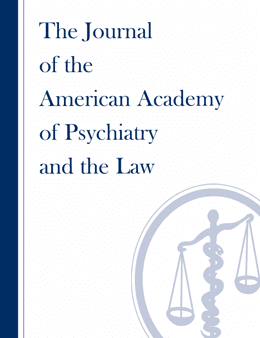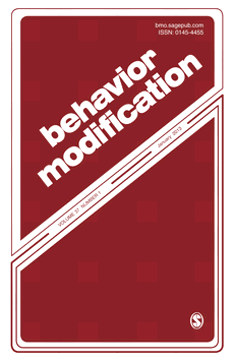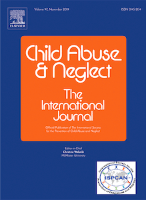
Journal of Intellectual Disabilities and Offending Behaviour
Scope & Guideline
Championing Knowledge for a Safer Society
Introduction
Aims and Scopes
- Forensic Assessment and Evaluation:
The journal emphasizes research on forensic assessments, particularly concerning individuals with intellectual disabilities, including evaluations in criminal cases and the unique considerations required for populations such as those with autism or Down syndrome. - Trauma and Risk Factors:
There is a strong focus on understanding the impact of trauma and adverse experiences on individuals with intellectual disabilities, including how these factors influence their behavior and risk assessments in forensic settings. - Community-Based Interventions:
Research on community-based support and interventions for individuals with intellectual disabilities involved in the criminal justice system is a core area, highlighting the importance of accessible services and reducing institutionalization. - Sexual Offending and Rehabilitation:
The journal covers issues related to sexual offending among individuals with intellectual disabilities, including treatment programs, educational initiatives, and the exploration of their experiences within secure settings. - Cultural and Systemic Barriers:
The journal addresses the systemic and cultural barriers that affect access to services for individuals with intellectual disabilities, particularly those from minority ethnic backgrounds.
Trending and Emerging
- Impact of COVID-19 on Forensic Services:
A trend has emerged in exploring the effects of the COVID-19 pandemic on forensic psychiatric evaluations and community-based services, highlighting the need for adaptive practices in response to global crises. - Understanding Autism in Forensic Contexts:
Research focusing on autism spectrum disorder (ASD) and its implications for offending behavior is on the rise, with studies examining juror perceptions, treatment needs, and specific risk factors associated with autism. - Complex Needs and Intersectionality:
There is an increasing emphasis on the complex needs of individuals with intellectual disabilities, particularly those with co-occurring conditions or from marginalized groups, stressing the importance of intersectionality in forensic practice. - Innovative Treatment Approaches:
Emerging themes include the development and evaluation of innovative treatment programs tailored to individuals with intellectual disabilities, particularly in addressing sexual offending and promoting positive sexual health. - Community Engagement and Co-Production:
A growing focus on community engagement and co-production in the development of services and assessments indicates a shift towards more collaborative approaches that involve service users in decision-making processes.
Declining or Waning
- Generalized Mental Health Issues:
There seems to be a decline in the focus on broader mental health issues not specifically tied to intellectual disabilities or offending behavior, indicating a shift toward more specialized research. - Traditional Risk Assessment Models:
Research on traditional risk assessment models appears to be less prevalent, as the journal increasingly emphasizes the need for more nuanced and specific assessments tailored to the unique needs of individuals with intellectual disabilities. - Historical Perspectives on Intellectual Disabilities:
There is a noticeable reduction in studies exploring historical perspectives and trends in the treatment of intellectual disabilities within the criminal justice system, possibly as the focus shifts to contemporary issues and practices.
Similar Journals

PSYCHOLOGY CRIME & LAW
Unraveling the Complexities of Human Behavior in Legal ContextsPSYCHOLOGY CRIME & LAW, published by Routledge Journals, Taylor & Francis Ltd, is a premier academic journal dedicated to the intersection of psychology, criminology, and the law. With an ISSN of 1068-316X and an E-ISSN of 1477-2744, this journal provides a critical platform for the dissemination of cutting-edge research and innovative methodologies in the fields of psychology, forensic medicine, and legal studies. Spanning over three decades (1994 to 2024), it holds impressive Scopus rankings, placing it in Q1 and Q2 quartiles for its contributions to law and forensic medicine, highlighting its standing within the academic community. PSYCHOLOGY CRIME & LAW is particularly noted for addressing contemporary issues at the crossroads of human behavior and legal standards, making it essential reading for scholars, practitioners, and students alike. While the journal is not open access, it offers valuable insights into a variety of topics, from criminal psychology to the implications of mental health in legal contexts, ensuring that it remains an influential resource for those engaged in research and professional practice.

Journal of Forensic Practice
Unveiling Insights into Forensic Science and Legal FrameworksThe Journal of Forensic Practice, published by Emerald Group Publishing Ltd, is a leading scholarly resource dedicated to the interdisciplinary domain of forensic science, law, and psychology. With an ISSN of 2050-8794 and an E-ISSN of 2050-8808, this journal serves as an essential platform for disseminating cutting-edge research and innovative practices in the field, spanning from 2013 to 2024. Despite its current impact factor positioning, ranking in quartiles such as Q4 in Applied Psychology and Q2 in Law illustrates its relevance to diverse academic communities, particularly within the United Kingdom and beyond. Researchers, practitioners, and students benefit from the journal's commitment to enhancing the understanding of the intersection between legal frameworks and psychological principles, thereby fostering a more robust forensic practice. The journal is not currently an open-access publication, ensuring a focused and specialized audience while gradually building its reputation across various Scopus categories. As the field of forensic practice evolves, this journal remains a vital source of knowledge, offering insight and guidance to the contemporary challenges faced by professionals in law and forensic sciences.

JOURNAL OF THE AMERICAN ACADEMY OF PSYCHIATRY AND THE LAW
Pioneering Research in Legal PsychiatryJOURNAL OF THE AMERICAN ACADEMY OF PSYCHIATRY AND THE LAW, published by the American Academy of Psychiatry and Law, is a pivotal resource for researchers and professionals engaged in the intersection of mental health, law, and forensic evaluation. With an ISSN of 1093-6793 and an E-ISSN of 1943-3662, this journal has been at the forefront of disseminating critical findings and discussions since 1997, now extending through 2024. Positioned within the Q3 category for Medicine (miscellaneous), Pathology and Forensic Medicine, and Psychiatry and Mental Health, it highlights its significance within these disciplines. Although the journal currently operates under a traditional access model, it remains a valuable platform for scholarly articles that inform practice and elevate understanding of legal psychiatry. Researchers are encouraged to explore its contents to stay abreast of contemporary issues and advancements in forensic psychiatry, making it an indispensable resource for education and practice.

BEHAVIOR MODIFICATION
Elevating research in behavior modification.BEHAVIOR MODIFICATION, published by SAGE PUBLICATIONS INC, is a prestigious journal dedicated to advancing the study and practice of behavior modification across various disciplines. With a robust ISSN of 0145-4455 and an E-ISSN of 1552-4167, this journal has established itself as a vital resource for researchers and practitioners since its inception in 1977. Recognized for its academic rigor, it is classified in the Q1 quartile for Arts and Humanities and Q2 in Clinical Psychology, as well as Developmental and Educational Psychology for 2023, showcasing its influence and relevance in these fields. The journal's Scopus rankings further exhibit its high standing, with 90th percentile in Arts and Humanities and 75th percentile in both development and clinical psychology categories. Although it is not an open-access journal, it provides essential insights and comprehensive research aimed at promoting evidence-based practices and innovative interventions in behavior modification. With a commitment to fostering interdisciplinary collaboration, BEHAVIOR MODIFICATION serves as an essential platform for researchers, professionals, and students seeking to enhance their understanding of behavioral principles to impact individual lives positively.

Journal of Police and Criminal Psychology
Empowering Law Enforcement with Psychological KnowledgeThe Journal of Police and Criminal Psychology, published by Springer, is a leading scholarly periodical that explores the intricate intersections of psychological principles and law enforcement practices. Founded in 1985, this esteemed journal serves as an essential resource for researchers, practitioners, and students alike, addressing contemporary issues in applied psychology and law, and has achieved a commendable position in its field, with a 2023 Scopus ranking of #128 in Law and #123 in Applied Psychology. With an impressive impact factor, it reflects the journal's commitment to advancing knowledge and fostering dialogues surrounding criminal behavior, law enforcement strategies, and psychological assessments. The journal maintains a non-open access model, ensuring rigorous peer-review standards while reaching a global audience interested in the psychological dimensions of criminal justice. As it continues to converge into 2024, the Journal of Police and Criminal Psychology remains dedicated to fostering groundbreaking research and facilitating critical insights that inform policy and practice in police psychology.

Psychology and Law
Enhancing legal frameworks through psychological perspectives.Psychology and Law, published by Moscow State Psychological & Pedagogical University, is an open-access journal dedicated to advancing knowledge at the intersection of psychology and legal studies. Since its establishment in 2011, the journal has provided a platform for high-quality research that addresses critical issues in applied, clinical, experimental, cognitive, and social psychology. Despite ranking in the Q4 quartile for various psychology categories in 2023, this journal remains committed to fostering insightful discussions and contributions to the field. Researchers and practitioners from diverse backgrounds are encouraged to explore its accessible content, which aims to enhance our understanding of psychological principles within legal contexts. The journal's ISSN is 2222-5196, and it primarily serves an international audience, promoting scholarly engagement and interdisciplinary collaboration. As the field evolves, Psychology and Law continues to be a vital resource for those seeking to bridge the gap between psychological research and legal practice.

Forensische Psychiatrie Psychologie Kriminologie
Unveiling the Complexities of Forensic Psychology.Forensische Psychiatrie Psychologie Kriminologie is a leading academic journal published by SPRINGER HEIDELBERG, specializing in the intersection of forensic psychiatry, psychology, and criminology. With an ISSN of 1862-7072 and E-ISSN 1862-7080, this journal has built a reputable place in the academic community, featuring essential research that informs the critical dialogue on legal and psychological practices as they pertain to mental health and criminal behavior. Indexed in Scopus, it holds a diverse range of impact factors across multiple disciplines, including a Q2 ranking in Law and notable placements within Applied Psychology and Psychiatry and Mental Health. The journal's commitment to advancing evidence-based practices and understanding of forensic mental health is evident from its broad editorial scope, making it a vital resource for researchers, clinicians, and students alike. The journal spans a timeline from 2007 to 2024, ensuring that it provides up-to-date insights into evolving methodologies and findings within this critical field.

CHILD ABUSE & NEGLECT
Illuminating the path to prevention and healing.CHILD ABUSE & NEGLECT is a premier journal published by Pergamon-Elsevier Science Ltd, focusing on the vital fields of Developmental and Educational Psychology, Pediatrics, Psychiatry and Mental Health, and Social Work. With a proud history spanning from 1977 to 2024, this journal consistently ranks in the top quartile (Q1) across various academic domains, reflecting its influential role in disseminating critical research findings and innovative practices related to child welfare. Boasting an impressive impact factor and a robust Scopus ranking, it serves as an essential resource for researchers, practitioners, and students alike who seek evidence-based insights into the complex issues surrounding child abuse and neglect. While the journal operates under a subscription model, dedicated access to high-quality research is guaranteed, making it an indispensable tool for advancing knowledge and fostering improved interventions in the protection of vulnerable populations.

Journal of Criminal Psychology
Transforming criminal justice practices through psychological innovation.Journal of Criminal Psychology, an esteemed publication by EMERALD GROUP PUBLISHING LTD, serves as a pivotal resource in the interdisciplinary study of criminal behavior through the lenses of psychology and law. Since its inception in 2011, this journal has significantly contributed to the understanding of psychological principles as they apply to crime, law enforcement, and social justice, making it a vital source for both researchers and practitioners. With a commendable ranking of Q1 in Law and Q3 in Applied and Social Psychology for 2023, the journal guarantees high-quality research findings that can influence policy and practice across these domains. Although it does not offer open access, its rigorous peer-review process ensures that every published article adheres to the highest academic standards. The Journal of Criminal Psychology not only fosters academic discourse but also drives innovation in criminal justice practices, making it essential reading for anyone dedicated to the enhancement of ethical standards in legislation and law enforcement.

JOURNAL OF FORENSIC PSYCHIATRY & PSYCHOLOGY
Advancing Forensic Insights for a Safer TomorrowJOURNAL OF FORENSIC PSYCHIATRY & PSYCHOLOGY, published by Routledge Journals, Taylor & Francis Ltd, is a pivotal platform for advancing knowledge at the intersection of psychology, psychiatry, and the legal system. With an ISSN of 1478-9949, this esteemed journal has been providing a critical forum since its inception in 2003, continuing through to 2024, to foster interdisciplinary dialogue among researchers, clinicians, and legal professionals. The journal holds a Q3 category ranking in both Clinical Psychology and Psychiatry and Mental Health, reflecting its important contributions to the field. With a focus on empirical research, theoretical perspectives, and case studies, it aims to enhance the understanding of forensic issues while ensuring ethical considerations in psychological assessments and interventions. Although it currently does not provide open access, the journal's rigorous peer-review process assures high-quality publications. Researchers looking to stay at the forefront of forensic psychology will find this publication indispensable for their scholarly work and practical applications.